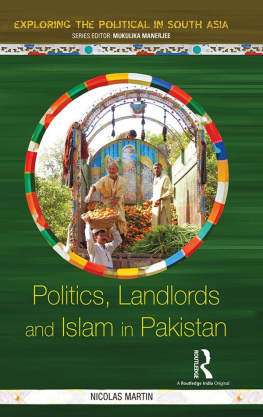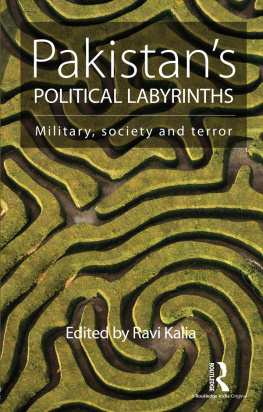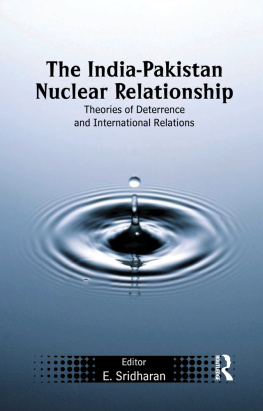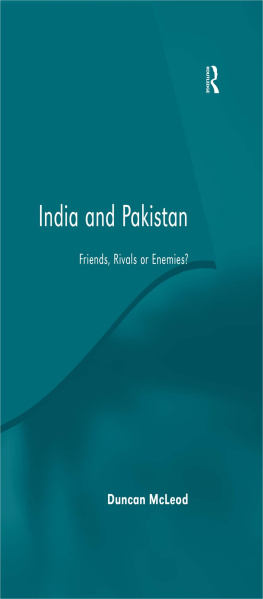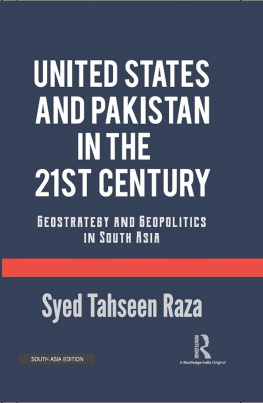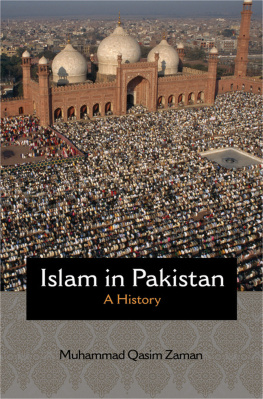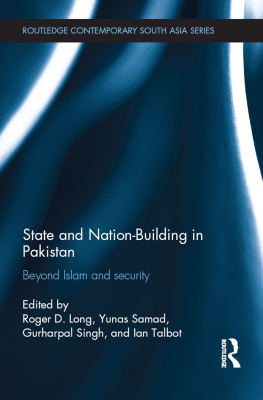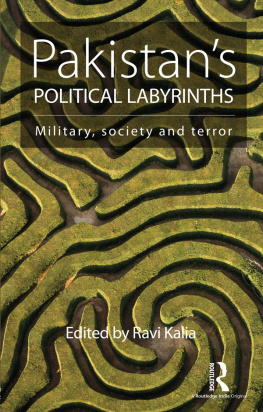This book offers a unique insight into the changing nature of power and hierarchy in rural Pakistan from colonial times to present day. This book shows how electoral politics and the erosion of traditional patronclient ties have not empowered the lower classes. The monograph highlights the persistence of debt bondage and illustrates how electoral politics provides assertive landlord politicians with opportunities to further consolidate their power and wealth at the expense of subordinate classes. It also critically examines the relationship between local forms of Islam and landed power.
The volume will be of interest to scholars and researchers of Pakistan and South Asian politics, sociology, social anthropology and Islam, as well as economics, development studies and security studies.
EXPLORING THE POLITICAL IN SOUTH ASIA
Series Editor: Mukulika Banerjee
Associate Professor, Department of Anthropology,
London School of Economics and Political Science
Exploring the Political in South Asia is devoted to the publication of research on the political cultures of the region. The books in this series present qualitative and quantitative analyses grounded in field research, and explore the cultures of democracies in their everyday local settings, specifically the workings of modern political institutions, practices of political mobilisation, manoeuvres of high politics, structures of popular beliefs, content of political ideologies and styles of political leadership, among others. Through fine-grained descriptions of particular settings in South Asia, the studies presented in this series inform, and have implications for, general discussions of democracy and politics elsewhere in the world.
Also in this series
THE VERNACULARISATION OF DEMOCRACY
Politics, Caste and Religion in India
Lucia Michelutti
978-0-415-46732-2
RISE OF THE PLEBEIANS?
The Changing Face of the Indian Legislative Assemblies
Edited by Christophe Jaffrelot and Sanjay Kumar
978-0-415-46092-7
BROADENING AND DEEPENING DEMOCRACY
Political Innovation in Karnataka
E. Raghavan and James Manor
978-0-415-54454-2
RETRO-MODERN INDIA
Forging the Low-caste Self
Manuela Ciotti
978-0-415-56311-6
POWER AND INFLUENCE IN INDIA
Bosses, Lords and Captains
Edited by Pamela Price and Arild Engelsen Ruud
978-0-415-58595-8
DALITS IN NEOLIBERAL INDIA
Mobility or Marginalisation?
Edited by Clarinda Still
978-1-13-802024-5
WHY INDIA VOTES?
Mukulika Banerjee
978-1-13-801971-3
CRIMINAL CAPITAL
Violence, Corruption and Class in Industrial India
Andrew Sanchez
978-1-138-92196-2
THE POLITICS OF CASTE IN WEST BENGAL
Edited by Uday Chandra, Geir Heierstad, Kenneth Bo Nielsen
978-1-13-892148-1
Politics, Landlords and Islam in Pakistan
Nicolas Martin
First published 2016
by Routledge
2 Park Square, Milton Park, Abingdon, Oxon OX14 4RN
and by Routledge
711 Third Avenue, New York, NY 10017
Routledge is an imprint of the Taylor & Francis Group, an informa business
2016 Nicolas Martin
The right of Nicolas Martin to be identified as author of this work has been asserted in accordance with sections 77 and 78 of the Copyright, Designs and Patents Act 1988.
All rights reserved. No part of this book may be reprinted or reproduced or utilised in any form or by any electronic, mechanical, or other means, now known or hereafter invented, including photocopying and recording, or in any information storage or retrieval system, without permission in writing from the publishers.
Trademark notice: Product or corporate names may be trademarks or registered trademarks, and are used only for identification and explanation without intent to infringe.
British Library Cataloguing-in-Publication Data
A catalogue record for this book is available from the British Library
Library of Congress Cataloging-in-Publication Data
A catalog record has been requested for this book
ISBN: 978-1-138-82188-0 (hbk)
ISBN: 978-1-315-68437-6 (ebk)
Typeset in Goudy
by Apex CoVantage, LLC
Contents
by Mukulika Banerjee
When we set up the series Exploring the Political in South Asia, we had intended that we would be able to include within it rich studies of the political in all the countries of the Indian subcontinent, not just India on which the literature is without doubt the richest. It is therefore a particular pleasure to write the foreword to this volume as it is the first book on Pakistan that we are publishing in this series. I am delighted to note that Nicolas Martin has delivered a book that is unique and in keeping with the tradition of rigorous and insightful political ethnography that this series attempts to showcase. Martin presents an analysis of contemporary Pakistan on the basis of evidence gathered during a period of two years during which he lived in rural Punjab sometimes in a Sufishrine, sometimes in humble rural homes, made friends with locals from across classes, worked in the local languages and got to know their public and private lives with an intimacy only anthropologists dare to achieve. This book therefore adds a totally new perspective and insight into Pakistan, a country that is much written about by writers who gain but a fleeting familiarity with people and places and usually from a distance. Martins account adds to this corpus with a scholarly and evidence-based account of the Pakistani state, electoral politics and clientilism written with a nose firmly on the ground.
This book tackles the most knotty issue that lies at the heart of politics in the populous province of Punjab that of patronage. Almost any account of Pakistani politics and its chequered record of democracy has drawn attention to the importance of political patronage in the creation of vote blocs that are mobilised for elections. These accounts have drawn attention to the entrenched nature of the power of rural elites who keep an impoverished rural workforce under their thumb by mediating between the states resources and the intended recipients. Such clientelistic relationships are then mobilised for votes during the election season as clients are forced to support their patrons political loyalties to ensure their own survival. Scholars in their attempt to interpret such a situation empathetically have sometimes argued that exploitative as it might seem from the outside, such a system of patronage has its advantages as it alleviates poverty by at least making sure that state resources are allocated somewhere and in doing so possibly also stem the possibility of widespread protest movements among the rural poor.
Martin categorically rejects such a reading of rural Pakistan. His book makes it clear that patronage is nothing but locally embedded despotism. He shows how landlords continue to use debt bondage as a way of controlling their clients and the other ways in which elites continuously exploit institutional, religious and social mechanisms to reproduce their power. He shows how the combination of feudal patronage and electoral democracy undermines other social mechanisms of creating social solidarity through political parties representing sectoral interests. As a result all alliances are forced to become nakedly instrumental and transactional in the zero sum game of political power. The result is everyday violence and vendetta that in turn create a state of vulnerability and fear among the poor. In the long run, this kind of politics, therefore, undermines the everyday power of the state by stemming the effectiveness of public sector services and benefits that the state is able to provide, by capturing resources for personal gain. Martin conducted this study while a military regime was in power under President Musharraf. Many Pakistanis had hoped that the strong leadership at the centre would make such local factional politics irrelevant as a military government would undercut corrupt political structures to reach the people directly. But unfortunately, even military regimes need to create a legitimacy for their existence, and Martin notes, military regimes used devolution programmes to create a loyal class of politicians.

